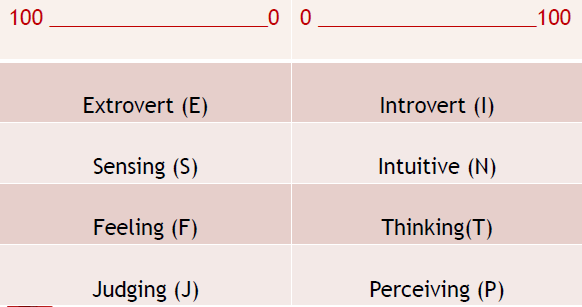Leadership Styles in Management
Leadership and Styles discusses leadership styles in management.
It highlights those "styles" that directly affect a leader's ability to get work done through others.
Lewin goes into great detail about Leadership Styles, but what we discuss here includes Personality, Learning, Communication, Conflict Resolution and Influencing Styles.
The information shared here is not designed to "label" people, but to increase our understanding of ourselves and those with whom we interact.
Thus, we can see that styles and leadership are directly related. And the styles of those you lead affect how they perceive you and your leadership style.

Leadership Styles in Management
Let's take a closer look at the following styles:
Awareness of these will help you better understand yourself and those you lead. Acknowledging and appreciating them will empower you to become a more effective leader.
Personality Styles
The Jung Typology is probably my favorite for assessing Personality Style. This "test" helps us understand who we are at the core, revealing our natural-born tendencies.
It measures the degree to which a person is Extroverted (E) or Introverted (I); Sensing (S) or Intuitive (N); Thinking (T) or Feeling (F); and Perceiving (P) or Judging (J).

Because it runs along a "continuum," it measures the degree to which we have a tendency to prefer one dimension over the other.
If you have not done so, please click HERE to view instructions to complete the test. (Remember to make a note of your style - there should be four letters.)
After completing the personality assessment, please return here to find out how personality affects your leadership style. Click below to take the test.
To find out how your style impacts how you lead and how others view your style, please take a look at the Jung Type Indicator.
Leadership and styles are directly related. It is very important to understand your style and the style of those you lead.
Learning Styles
A person's learning style indicates how one takes in information and converts it to useable knowledge. The most basic assessment identifies whether a person is a Visual, Auditory or Kinestic learner.
I happen to be a Visual learner and tend to think in "pictures." My secondary style is Kinestic (also known as Tactile) which means I prefer learning some things hands-on and engaging in activity/doing.
It really is quite fascinating how you can determine a person's preference. Just listen to what they say. See if you can pick up on their learning style.
See there, that phrase gives you a hint about my primary and secondary method of learning: "see" and "pick up."
Do you know your learning style? If not, take a few minutes to complete a Learning Style Assessment.
Communication Styles
In communicating, people tend to be Passive, Assertive or Aggressive.
The passive person tends to be indirect and may not express clearly what they are thinking or feeling.
The assertive person tends to give others equal "air time" to voice their opinions and feelings. They will state their opinions and allow others to do the same.
The aggressive person tends to "bowl" people over and is often described as a "difficult" person. I'll bet you know someone with this style. Perhaps, you have been a "difficult" person at one time or another.
Communication styles directly affects you and the individuals on your team. Click HERE to see how.
Conflict Management Styles
Conflict tends to "exaggerate" our communication style.
If one has a passive communication style, under stress this person will go further in their "cave" and become less expressive.
The aggressive person tends to become more and more overbearing, and may "take their marbles and go home" because they are not getting their way. For more, see Conflict Management Styles.
Thinking Styles
Brain Dominance refers to whether a person is Left Brain or Right Brain.
Left Brain thinkers are analytical, pay attention to details and like to make plans. Right Brain thinkers, on the other hand, use holistic reasoning, are conceptual and rely on intuition.
Left brain thinking dominates in the workplace.
R. E. Kelley has also addressed thinking styles of five (5) types of followers.
Influencing Styles
Influence is the art of persuasion. It is the "process of affecting the thoughts, behavior, or feelings of another person."
Since influencing others is how leaders get work done through others, it is important to understand influencing styles and the science of persuasion.
Want To Know More?
Leadership and styles are directly related.
The information we have shared on Leadership and Styles is intended to help you better understand how styles can affect you and your effectiveness.
Can you see how these styles affect leaders and their abiltity to work well with others, especially their direct reports?
Please complete the assessment for your Jung Typology and Learning Style. (See steps for completing each assessment above.)
After getting more information about your personality and learning style(s), see how they affect your preference for one of the Leadership Styles.
Coming January 2024
I am committed to bringing you the best in leadership development practices so you can stay in the know. To get monthly updates from Leader Who Leads directly to your inbox, just click the subscribe button and submit your information. I look forward to receiving your request.
Be on the lookout for new leadership training sessions via live and recorded webinars.









